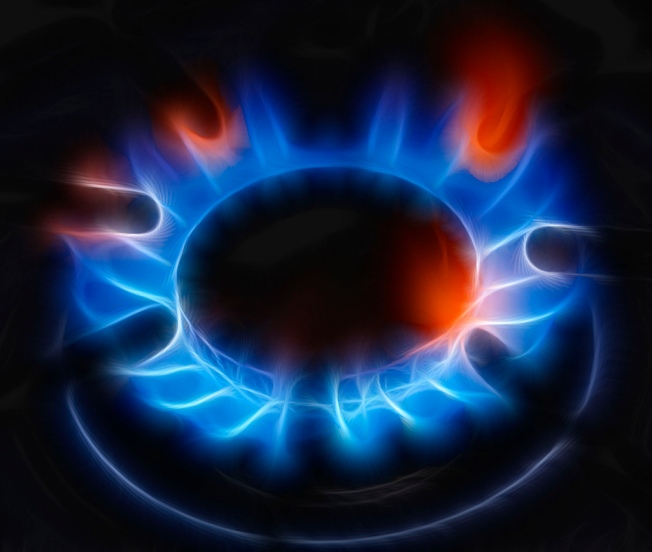
The Energy Collective Group
This group brings together the best thinkers on energy and climate. Join us for smart, insightful posts and conversations about where the energy industry is and where it is going.
Post
Washington Gas loves its customers too much for their own good

Washington Gas has been emailing its Virginia customers this month to offer them rebates if they buy new gas appliances, including home heating equipment (up to $700) and water heaters (up to $400). What the message doesn’t say is that this is a terrible deal. Customers will be able to get far bigger incentives if they wait until January and buy electric equipment instead.
Under the just-passed Inflation Reduction Act (IRA), Uncle Sam will provide tax credits of up to $2,000 per year for electric heat pumps that provide both heating and air conditioning as well as heat pump water heaters. Lower-income customers will be able to access upfront discounts of up to $8,000 for a heat pump, $1,750 for a water heater, $840 for an induction stove, and other amounts for additional upgrades. If you’re converting from gas and your electric panel isn’t sized to handle the extra electric load, the IRA will help with an upgrade. (For a full rundown of rebates and tax credits for homes, see this list from Rewiring America.)
It used to be that gas furnaces were more efficient and cheaper to operate than most electric heating options, but today the reverse is true: An EnergyStar heat pump uses energy more efficiently and costs less to operate than a fossil fuel furnace or boiler. A heat pump water heater, which I’d never even heard of until recently, is more efficient than either gas or a standard electric hot water heater and, again, saves money on operation.
Advances in heat pump technology and induction stoves, concerns about climate change and growing awareness of the dangers of burning fossil fuels indoors mean the switchover from gas to electricity would have happened without the IRA. But the IRA’s rebates are expected to goose the transition and transform the building sector.
Many consumers haven’t heard about the IRA’s rebates yet, and they may not have given much thought to home electrification. They need this information, but they sure won’t get it from their gas company.
Washington Gas is pushing its gas appliance rebates now for an even bigger reason, though, and one that makes it especially important that customers give them a pass: Installing an expensive new gas furnace locks you into the company’s fond embrace for the life of the furnace, no matter how high natural gas prices go.
It’s true that electric appliances will further tie you to your electric utility (unless you have solar panels), and electricity rates have been going up as well. But electricity rates are going up mainly because fossil fuel costs have skyrocketed. Dominion Energy Virginia, for example, cited a 100% increase in the price of natural gas when it asked for a rate hike this summer. As the electric grid gets greener year by year, lower-priced wind and solar energy will have a moderating effect on electricity prices. Your gas utility, on the other hand, will never have anything to sell you but gas.
It gets worse. Gas companies have to maintain their network of pipelines and other infrastructure regardless of how many customers they have. Those costs will be spread over a shrinking rate base as more and more customers switch over to electricity, raising rates for the remaining customers. If you buy a new gas furnace now, you will be trapped in that shrinking pool of customers, paying ever more to maintain pipelines.
Today, Washington Gas charges customers a flat “system charge” of $11.25 per month, plus supply and distribution costs based on how much gas is used that month. Customers who electrify their homes escape the monthly system charge and gain the convenience of dealing with just one utility. But the real savings come in not being part of a shrinking rate base paying an ever-larger share of the gas company’s fixed costs.
That makes Washington Gas’s rebate offer doubly dangerous for customers who don’t know about the IRA. Someone whose old gas furnace is on the fritz might see the email and decide to use that small rebate to buy a new gas furnace, when they would be far better off keeping the old one limping along for a few more months. Come 2023, they would then reap the benefit of an electric heat pump with a much larger rebate or tax credit.
Consumers are set to save a lot of money and energy under the IRA’s incentives for home electrification — but not if they get locked into fossil fuels first.
This post was originally published in the Virginia Mercury on October 28, 2022.
Discussions
No discussions yet. Start a discussion below.
Get Published - Build a Following
The Energy Central Power Industry Network® is based on one core idea - power industry professionals helping each other and advancing the industry by sharing and learning from each other.
If you have an experience or insight to share or have learned something from a conference or seminar, your peers and colleagues on Energy Central want to hear about it. It's also easy to share a link to an article you've liked or an industry resource that you think would be helpful.






















Sign in to Participate